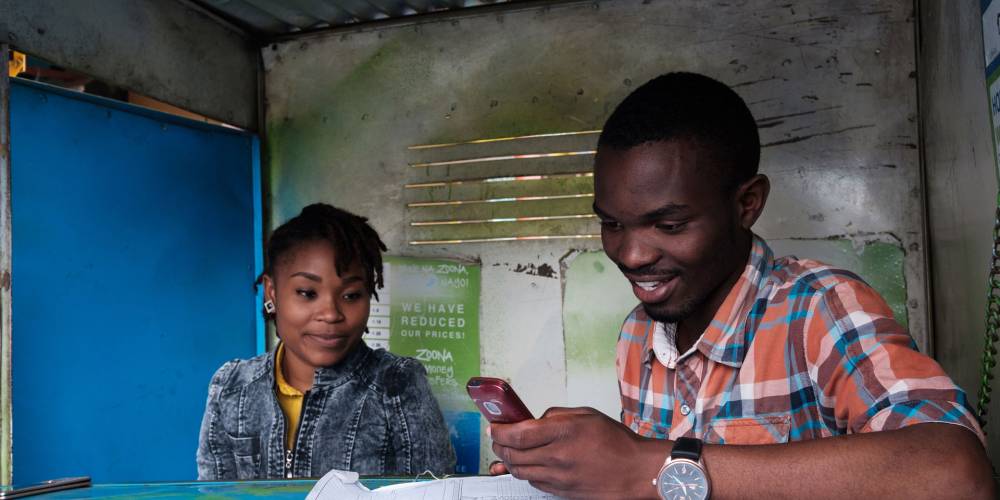
Fintech Partnerships Are Not Difficult To Form – If You Know How To Do So
Fintech partnerships are not difficult to form – if you know how to do so
Fintech is gaining traction in Africa as a result of strategic collaborations between startups, banks, and various categories of multinational corporations. McKinsey & Company reports that at least five partnership models are currently preferred.
A vendor relationship is one model: a bank that needs to quickly bring an innovation to market opts to leverage a fintech's technology, avoiding the hassle of building from scratch.
A digital-only bank (say, Kuda) partners with traditional banks to offer in-branch deposits, ATM withdrawals, and card issuance through a distribution model. Chaka, a newly licensed stock trading app, has been able to offer users investment options through partnerships with brokerage firms.
Other partnership models identified by McKinsey include strategic investments (such as Visa's 20% stake in Interswitch); joint ventures (in which two entities collaborate to develop a common product); and outright acquisitions – a popular example over the last year being Stripe's acquisition of Paystack.
Whatever type of partnership is formed, the objective is to win. A long-term win for a startup could be a successful exit or initial public offering (IPO). Otherwise, the immediate objective is to accelerate growth at a rate that they could not achieve on their own.
However, partnerships do not automatically succeed simply because two parties have similar intentions or ambitions.
Not a piece of cake
“Success should not be taken for granted, and both parties must be prepared,” says Mayowa Kuyoro, a McKinsey partner and head of the firm's West Africa financial services practice.
Alignment is critical in terms of resources, culture, and regulatory compliance, among other factors.
It is a thought that Abubakar Suleiman is constantly considering. Suleiman receives partnership offers on a regular basis as CEO of Sterling Bank and considers himself amenable to numerous conversations.
However, he has identified a problem: “Most of the time, we are unsure of the problem we are attempting to solve,” Suleiman explained. “We are attempting to enter into partnerships because we believe there is mutual benefit.”
Suleiman has found that partnership conversations work best when the initial focus is on problems and the capacity to solve them. As such, he wishes to promote an approach that views partnerships through the lens of capabilities, rather than institutions.
For instance, a startup in need of a regulatory partner should seek out the most capable and experienced firm in the field. It should make no difference whether this business is a large bank or something else.
What’s on the table?
Having said that, the magnitude of the rewards at stake for both parties is critical.
“It is critical to ensure that the economics work for everyone,” Tayo Oviosu, co-founder and CEO of Paga, says.
He cites the example of Paga's partnership with Interswitch in the 2010s, which, while initially profitable for both parties, eventually dwindled. It necessitated a review, following which Paga determined that it would be in its best interest to connect directly to every other billing service provider in Nigeria.
Ria, a money transfer company, is present in 43 African countries. According to Robert Kotei, Africa's operations director, startups and companies with a global presence can be more appealing to multinational corporations seeking partnerships.
However, a startup may need to prove itself patiently before securing large partnerships.
While launching Bankly in 2019, Tomilola Majekodunmi faced the dilemma of determining which partners she required to achieve the startup's goal of digitizing contributory savings networks known as ajo. Bankly intended to accomplish this through collaboration with telcos.
It did not work out, in part because the potential partners were already looking to offer similar services directly. They did not perceive a distinguishing advantage that would entice them to form a partnership.
“We were unable to secure a fair or equitable partnership because we were either too young or too small for these large players,” Majekodunmi explained. As a result, Bankly invested two years in developing an agent network that now numbers 15,000 agents throughout Nigeria.
Minimum viable partnerships
Elsa Muzzolini, general manager of MTN's mobile financial services, recognizes the challenges inherent in collaborating with relatively small startups. Three factors, she explained, are frequently at work.
Parties may have varying expectations regarding the length of time required to complete transactions. They may depart from the originally agreed scope, and identifying the precise contact person capable of initiating decisions can be challenging.
Where these factors come together, partnerships have the potential to succeed. Muzzolini, on the other hand, wants startups to look for ways to collaborate that avoid the formal phases that a typical partnership entails.
“Can we agree on a more casual form of partnership? Acquire my API and run with it. Perhaps as your numbers grow, we can discuss co-branding and other opportunities.”
Courses and Certification
Fintech - Financial Technology Course and Certificate
SAP Simple Finance Course and Certificate
IT Project Management Course and Certificate
Management Information System - MIS Course and Certificate

